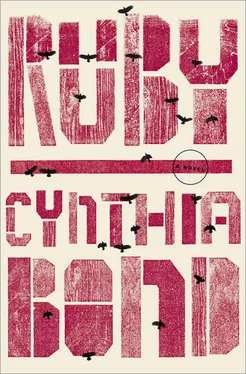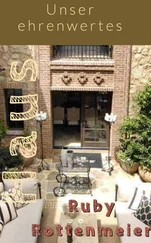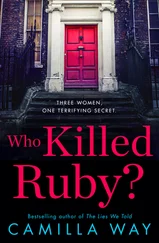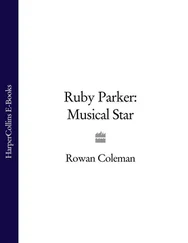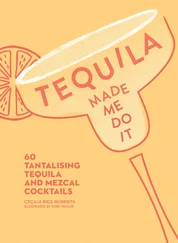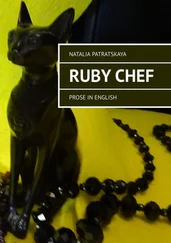Outside in a pine, just above a row of headstones, an old crow gnawed on a pine nut. She was the only creature to see the red powder, rife with ill intent, spread across the entrance of the Bell home. She was the only living being to see Ephram unwittingly step squarely into it and track it like evil into Ruby’s house.
Monday morning broke through, rubbing Sunday out of its eyes. All across town, coffee had been brewed and cups emptied. The crusts of toast and hardened grits had already been scraped into slop jars. By 9:00 A.M. Ephram Jennings’s sin had already been stirred, baked and left to cool, its scent filling the air of Liberty.
The In-His-Name Holiness Church was bustling in preparation for the one o’clock service. Pastor Joshua was at his desk writing the eulogy, trying to avoid as many R, M and T words as possible, as they played the devil with his nearly conquered habit of stuttering. He wondered if Ephram Jennings would show his face today after the disgrace he’d laid upon Mother Celia. It wasn’t just that he had taken up with another woman, because that was bound to happen in the life of a man given the temptation that surrounded him daily; it was that he had walked into a living room in hell and made himself at home. He was grateful Mother Celia had calmed the crowd, else they might have chased her out of town, like they did Sister Thelma after she took up with Supra Rankin’s husband — and she was a churchgoing woman. Lord knows, he wondered, what they would do to a heathen. The Pastor looked at his paper and thought of how he could weave in Proverbs 29:3 and Matthew 15:22, but doubted that the Rankins would appreciate that many references to harlots and demonic possession during Junie’s eulogy.

RUBY AWAKENED in a warm bed, sheets clean beneath and above her. Ephram was moving about her home so she watched him, in his undershirt, bringing in wood, lighting a steady fire in the stove. Ruby had only seen Ephram in ill-fitting shirts and suits. Now, in the morning light, his body was carved like hard oak — fine sanded, buffed, stained dark and polished. A watercolor tin of browns. She wondered what Billy would say if he saw her here in bed with this man. What would Mrs. Gladdington say if she saw Ephram? Met him, say, on Broadway and Fifty-third? Would she inadvertently try to put a coin into a paper cup filled with cola he’d just gotten from a hot dog vendor? What if Ruby stopped her, introduced them? Mrs. Gladdington could whip a word. Cut an object, a verb and a preposition, a beaker of adverbs, with the delicacy and skill of a cruel scientist. How easy would it be to wound this man, without him ever knowing that he had been hit?
Or what would any of the quick, darting people she had met, what would they say ? The liberal world, the brave outsiders, and the wealthy philanthropists. So different, yet all could be depended upon for one common hypocritical judgment against this singular Black man. What disdain would tumble from their collective eyes, their taut, stretched lips?
The disapproval of class and race. If Ephram were a beleaguered member of the abject, illiterate poor, a recipient of their charitable largesse, flown in and trotted out at a five-hundred-dollar-a-plate banquet in their own honor — if he were in a suit purchased by them for the occasion, they would sit and chat and pose for snapshots in Vanity Fair and Page Six and pretend to be the type of people who didn’t care about such things. But bring him to an upper East Sixties party as your guest and the socialite sea would part, leaving him alone with his canapés. Good? Hardly enough. Honest? Utterly boring. An aging East Texas Black man with slow speech and Sunday school clothes was beyond unthinkable.
Yet, there he was, making her a cup of coffee, a nervous start in his movements. She saw the nicks and scars that littered his body like twigs, little badges from a war he had not only survived, but won. Tall, proud, honest, brave. And when his friend had come to call him away, he had chosen to stay. Ruby’s heart became soft like sweet potato pie and she couldn’t wait to press against the man.
Close to eleven-thirty, walking up the narrow road to Bell land, came a migration of men, all dressed in their navy and black suits, nails and underwear clean. They smelled of Lifebuoy soap and Old Spice, except Chauncy, who led the pack, dabbed and splashed in Paco Rabanne, a gift from one of his lady friends in Galveston. Gubber trailed behind, head bowed, carrying a travel bag containing Ephram’s suit, shirt and tie. He had thought to say no, but he wasn’t a man likely to go against a strong woman, much less the whole of a town. Celia had given him Ephram’s belongings with the charge of delivering a message. It was not one he relished. Not even a little.
BY THE time the men reached Bell land, Ephram had already tracked the red powder all over Ruby’s home — upon her fallen hair as he was sweeping it into a brown paper sack. He did not notice her watching eyes any more than the fact that he had tracked that same powder under her porch, where he hid the sack full of cotton candy hair until he had time to burn it, just as Celia had taught him to do his whole life to protect against conjure. Then he’d unknowingly spread specks of the powder all about the kitchen and the bedroom. His belly had already wrenched and cramped and sent him running to Ruby’s small toilet, where he rocked back and forth, grinding the red silt into the floorboards.
He did not know why he was suddenly aching and tired, not just his soles and the length of his feet, but his ankles and calves as well.
After he had shaved, brushed and washed himself off as best he could with the help of items purchased at P & K and a shallow small basin, the dull, exhausting pain seeped into his bones, making him have to sit down on the bed. When the malady reached his stomach again, sweat erupted in his temples and he almost doubled over. It was more than the usual pain; there was also a spreading sickly fear. It seemed to be pumping from his heart, through the smallest of his veins, so that it webbed through every part of him. He was empty and weak when the men arrived.
Chauncy, who didn’t fancy himself an errand boy, sent Gubber to knock on the door.
Ruby opened it, a lift of fear catching in her throat.
Gubber and all of the men stopped dead when they saw her. The caramel glow of her skin, the curl of her black hair, rolling like a frothy river past her shoulder blades. They remembered the girl who had first arrived in Liberty and suddenly felt dull and thick.
Except Chauncy. He glared at Gubber and said, “Go get that boy.”
Gubber, not knowing what else to do, nudged past Ruby and found Ephram sitting on the bed.
He walked to him, leaned over and whispered into his ear, “Celia say if you ain’t at Junie’s funeral she gone send for the Sheriff in Newton to haul Ruby off to Dearing.”
Ephram’s eyes rested upon Ruby across the room fiddling with the crackers and peanut butter. He thought about his mama and the one time Celia took him to see her after their daddy died. The locked gate, and then the next — like a prison except everyone there with a life sentence. They had brought his mother down in a light blue gown with stains that had been washed and dried more than once. Ephram thought about her hair matted and high, the burn marks on her temples, and the needle pricks up and down her purple arms. He saw her eyes, scorched, empty things that only looked at the ground or just past his shoulder. She smelled.
She had seen him for an instant. A look of bittersweet relief visited her face, her shoulders sloped and her graceful neck rose. She tried to lift her hands, which is how Ephram noticed that they were bound. She seemed to notice it in that moment as well. She began to cry and so of course he did as well. An avalanche of shame seemed to turn her head and then her eyes became vacant and she rocked softly until they led her away.
Читать дальше
